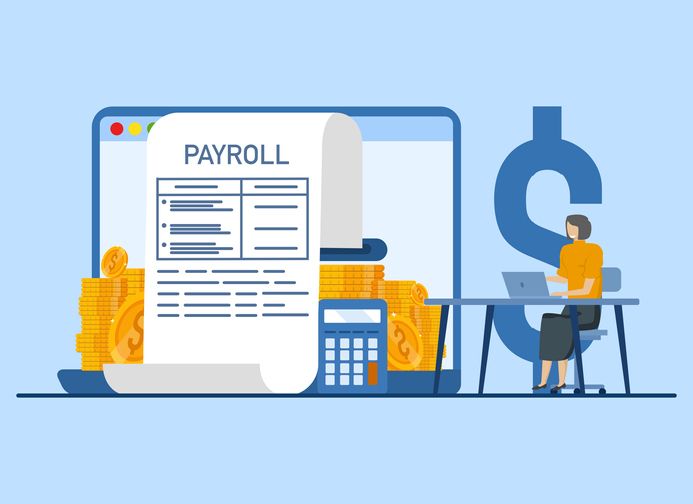Don’t Wait for Banks or the SBA for Funding
As a small business owner, you’re likely among the tens of thousands who have applied for more than $40 billion in relief funding under the Paycheck Protection Program. The roll-out of the program has experienced technical glitches and lender frustrations, leaving cash-strapped small businesses in a precarious situation.
According to Neil Bradley, U.S. Chamber of Commerce Executive Vice President and Chief Policy Officer, “Lending Programs are figuring out how they can do this as soon as possible, but there’s a lot to work through. We all have to have a bit of patience.”
If you can’t wait for Small Business Administration funding and need immediate working capital, here are some alternative financing options you might want to consider:
Accounts Receivable Financing
If your business invoices its customers, invoice factoring can help you avoid the snowball effect of late payments and bad debt. Factoring or accounts receivable financing are a form of invoice factoring that provide regular cash injections throughout the month.
If you decide to use invoice factoring, you also hand over control of your accounts receivable to the factoring company. This may be highly beneficial if you’re struggling to collect debts efficiently, or don’t have the time and resources to maintain effective credit control procedures.
Asset Finance
Asset finance is a way to access the vital equipment and machinery you might need to continue to grow your business. Various forms of asset finance exist, but for new businesses equipment finance it can be invaluable as it’s typically not possible to purchase assets outright at this stage.
Equipment leasing and hire purchase are both forms of equipment finance and offer alternative ways to fund the purchase of expensive assets. You also benefit from spreading the cost over a fixed period of time.
The type of asset finance that’s most suitable depends on your business, but equipment leasing and hire purchase both help you grow sustainably and reduce the risk of using up your working capital.
Working Capital Loan
A working capital loan is intended to help a small business get enough capital in the bank to cover ongoing expenses of the company. There are both advantages and disadvantages to choosing this option. Working capital loans may be used for overhead costs, inventory purchases, or payroll, and in some cases, businesses can receive funds within a day or two.
Although the funds can be received relatively quickly, working capital loans come with some downsides. A working capital loan requires a company to have at least one year in operation, as well as verifiable revenue. Some lenders may also require collateral to back to the loan; without it, a higher interest rate may be charged. Working capital loans can be helpful in a pinch, but they are intended to be short-term loans, which is reflected in the cost.
Crowdfunding
Online crowdfunding sites give you an opportunity to get a little bit of money from each member of a large group of microinvestors. In exchange for funding assistance, you offer your microinvestors something in return, such as a free product or service. There are no applications, collateral, credit concerns, or repayment terms. You simply need to concentrate on making an effective pitch.
Angel Investors
An angel investor is a company or person willing to give your company a loan as an investment. Online peer-to-peer lending has made finding angel investors much easier than it used to be. However, it can still be difficult to find one. To maximize your chances of convincing one to invest in your business, you need a solid business plan and an excellent pitch.
Trending Resources
Here are some articles that are trending on our website because of the COVID-19 outbreak. We hope you find these helpful as well.
Financing Options During a Crisis
You probably are overwhelmed with news stories regarding the Coronavirus pandemic. It is causing tremendous hardship across the U.S. and the world. While a great deal of uncertainty remains, there are steps you can take to shore up your company’s working capital.
What to do When the Bank Says No
Small businesses tend to operate right on the edge, which means that most of them will need some financing assistance sooner or later. Unfortunately, getting a bank loan is not possible for a lot of growing businesses. More than half of all business loan applicants are denied, and most of those approved are well-established. Fortunately, there are number of other financing options that your business can turn to when the banks turn you down.
Crisis Strategies to Get Your Business Back on Track
Crises are realities that businesses either come face to face with or flirt with over their life cycle. These are conditions that present serious challenges to the business owner and its staff. How you respond to crises is going to define how your company grows and succeeds in the long term. Here are some strategies you can consider to help your business handle a crisis period.
The Bottom Line
While these are truly unprecedented times, there are many options available to maintain healthy cash flow. As always, the Universal Funding team remains laser-focused on your company’s success. We maintain our commitment to providing fast and efficient funding ensuring that businesses have the cash flow needed to continue their operations.
About Universal Funding
Universal Funding is a private funding source that has funded thousands of businesses and more than $2 billion since 1998. We turn your accounts receivable into the funding you need through invoice factoring and can have capital in your hands in a matter of days. Call us today for more information at 800.405.6035.




